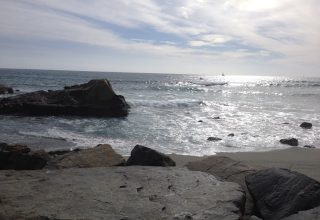
Isn’t that going too far, though? How can we be empathic in today’s world when terrorists are plotting to eliminate our way of life? No: Empathy with the worldview of others doesn’t mean moral relativism. There is right and wrong. Yet unless you stand also in your adversaries’ shoes, you’ll not foresee their strategy, let alone defeat them. That’s why David, the slayer of the mighty Goliath, exclaimed: “From my enemies I became wise.”[v]
Modern-day leaders need a mind-set like the biblical warrior Yiftach who became Israel’s army chief, a judge, and quite possibly the world’s first diplomat. Why? Because of his openness (his name comes from poteach, “open”), Yiftach did not go to war with his enemies until he’d talked to them; and he started negotiations by asking them questions about their perspective, for example, “What is there between you and me that you have come to me to make war in my land?” and only then stating his own people’s interests.[vi]
For the Sake of Peace You May Bend the Truth
Moses’s brother Aaron had the love and compassion to see both sides in a conflict. If two businessmen quarreled, Aaron went to each in ancient shuttle diplomacy. He’d allow himself to stretch the truth a little, just enough to bring about peace. He assured businessman A that businessman B had expressed appreciation and eagerness to resolve their dispute. Once A agreed to sit down with B, Aaron immediately went to B and told him A was ready to make peace. The sages later backed Aaron up: “For the sake of peace one is allowed to change [the truth].”[vii]
In 1919, an Arab leader and a Jewish leader practiced the principle of being in the other side’s shoes for the sake of peace, and did so in perhaps the toughest place: the Middle East. Emir Feisal, whose father Sherif Hussein of Mecca had led the Arab world in World War I, and who represented the Arab Kingdom of Hedjaz at the Paris peace conference after World War I, met with Chaim Weizmann, the representative of the Zionist organization. Meeting first in Aqaba, Jordan and then in Paris, they signed an agreement calling for all necessary measures to “encourage and stimulate immigration of Jews into Palestine on a large scale.”[viii] In a follow-up letter to Weizmann, Feisal wrote:
Download Article














